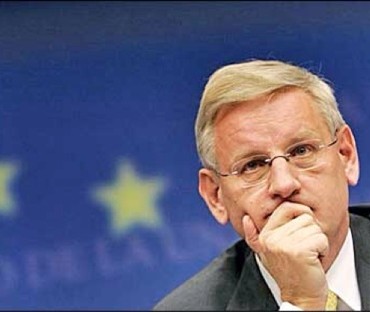A commentary by Member of the IWP Supervisory Board – former Swedish Foreign Minister Carl Bildt published on ECFRIt was not predestined that Russia should end up in confrontation with the EU; the beginning of the relationship promised something very different. The Partnership and Cooperation Agreement of 1997 laid out lines for cooperation that seemed to indicate a rosy future. But as Russia’s domestic situation changed, the two sides grew further apart. Russia’s permanent insistence on being treated as “an equal” implied a growing, though hidden, disagreement regarding the values upon which EU enlargement is based.\
The war in Georgia in 2008 seemed at the time like a mere “dip” in relations between Europe and Russia, but in fact, it presaged the decisive split that we see today. Medvedev’s presidency warmed relations, but also made the EU overlook the signs that should have sowed alarm. Then Putin’s third term changed things fundamentally. The Kremlin began to actively try to stop the efforts of the EU’s Eastern Partners to move closer to Europe. Now Russia has changed from a “strategic partner” to a “strategic problem”. Russia wants “new rules” and threatens that the alternative is “no rules at all”. The problems that we are facing are deep and multi-layered, and will be here for a long time. But even so, what happens to Ukraine now will play an important and possibly decisive role not just in Russia’s relationship with Europe but in the future of the continent itself.
Publication

Russia, EU and Eastern Partnership
12:49 PM 28-5-2015



Comments theme
Comments themeComments themeComments themeComments themeComments themeComments themeComments themeComments themeComments themeComments themeComments themeComments themeComments themeComments themeComments themeComments themeComments themeComments themeComments themeComments.